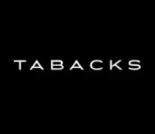In an earlier publication we discussed the decision that was passed by the Western Cape Division of the High Court in the matter of Café Chameleon v Guardrisk Insurance Company Limited, which concluded that the Business Interruption insurance policy taken out by the insured did indeed respond to the COVID-19 lockdown and subsequently ordered the insurer to indemnify the insured in accordance with terms of the business interruption policy in question.
A new judgement was delivered by a full bench of the Western Cape Division of the High Court on 1 September 2020 in the matter of Ma-Afrika Hotels (Proprietary) Limited v Santam Limited, confirming the decision of the Western Cape High Court in the Café Chameleon decision and upholding the insureds claim for indemnity under its Business Insurance Policy with the insurer.
The insured's establishments were, at all relevant times, fully insured by the insurer for Business Interruption cover (which cover contained an infectious disease extension).
While the first reported case of COVID-19 infection in Cape Town occurred on 11 March 2020, a first case of COVID-19 infection was reported in one of the insureds establishments in Stellenbosch. The staff at this establishment had to be quarantined for two weeks (until 25 March 2020) as a result.
On 23 March 2020, a nationwide "hard lockdown" was announced by the State President and on 25 March 2020 the lockdown regulations were published and, in compliance with these regulations, all hotels and restaurants were required to close.
The insured submitted a claim under the Business Interruption insurance policy taken out with the insurer. While the insurer accepted liability under the policy for the period from 15 March 2020 until 27 March 2020 (the duration of the quarantine), it did not however accept liability for the full duration of the "hard lockdown".
The insurer conceded that i) COVID-19 was a notifiable disease in terms of the contagious disease extension clause ii) there were confirmed cases within 40km radius of the insured's establishments and iii) the establishments had to close under the national lockdown imposed by the government in response to COVID-19, and that a loss was suffered by the insured as a result.
The insurer however contended that although the pandemic resulted in a loss to the business of the insured, it did not trigger liability under the policies (the policies covered insured loss, on the terms provided for in the policies, and not the economic hardship that follows as a result of the COVID-19 pandemic) and that any loss that the insured had suffered (over the lockdown and not in respect of the period prior to that in which the establishments and their staff were quarantined) was caused by the lockdown itself and/or a general concern or fear of the public, and not directly by the contagious disease (as required by the policy).
All parties to the case conceded and agreed that the facts of the Café Chameleon decision were "on all fours" with the facts in the present case. Accordingly, while the insured argued that the Court should follow the Cafe Chameleon decision and find in its favour, the insurer argued (predictably) that the Café Chameleon decision was wrongly decided – in particular with regard to the identification of the insured peril.
In relying on a United Kingdom case (The Financial Conduct Authority v Arch Insurance (UK) Limited) which dealt with a similar question, the Court concluded that the COVID-19 pandemic and the government response to it were inseparably one and the same peril (an outbreak always comes with a risk of a government response) and that accordingly there was a factual and legal causal link sufficient to trigger the policy wording.
All that was required to be shown therefore was that an incidence of COVID-19 must have arisen within the geographical area stipulated by the policy, which was accepted as fact.
The content of this article is intended to provide a general guide to the subject matter. Specialist advice should be sought about your specific circumstances.
